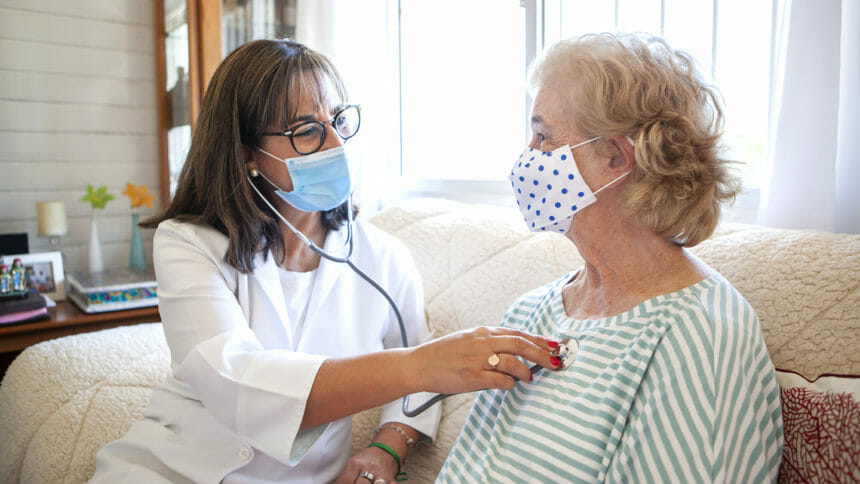
(HealthDay News) — Some patients with postviral syndrome (PVS) after suspected COVID-19 have detectable severe acute respiratory syndrome coronavirus 2 (SARS-CoV-2)-specific humoral and cell-mediated immune responses, according to a study published online Aug. 23 in Neurology: Neuroimmunology & Neuroinflammation.
Zachary S. Orban, from Northwestern University in Chicago, and colleagues measured SARS-CoV-2-specific humoral and cell-mediated immune responses against Nucleocapsid and Spike proteins in 29 patients with PVS after suspected COVID-19, 32 confirmed age- and sex-matched patients with neurologic manifestations similar to those with postacute sequelae of SARS-CoV-2 infection (Neuro-PASC), and 18 unexposed, healthy controls.
The researchers found that 41% of the patients with PVS had detectable humoral or cellular immune responses consistent with prior exposure to SARS-CoV-2. Overall, 75 and 50 percent of the 12 PVS responders harbored anti-Nucleocapsid and anti-Spike responses, respectively. PVS responders had similar neurologic symptoms as those with Neuro-PASC, but clinic evaluation occurred later from the time of symptom onset (10.7 versus 5.4 months). Similar subjective impairments in quality-of-life measures were seen for PVS responders and patients with Neuro-PASC, including cognitive function and fatigue. Compared with patients with Neuro-PASC, PVS responders had similar results in objective cognitive measures of processing speed, attention, and executive function and better results in working memory.
“Millions of Americans with postviral syndrome may have been exposed to SARS-CoV-2 at the beginning of the pandemic, and they deserve the same access to care and inclusion in research studies as people with a confirmed COVID diagnosis,” senior author Igor J. Koralnik, MD, from Northwestern University, said in a statement.
